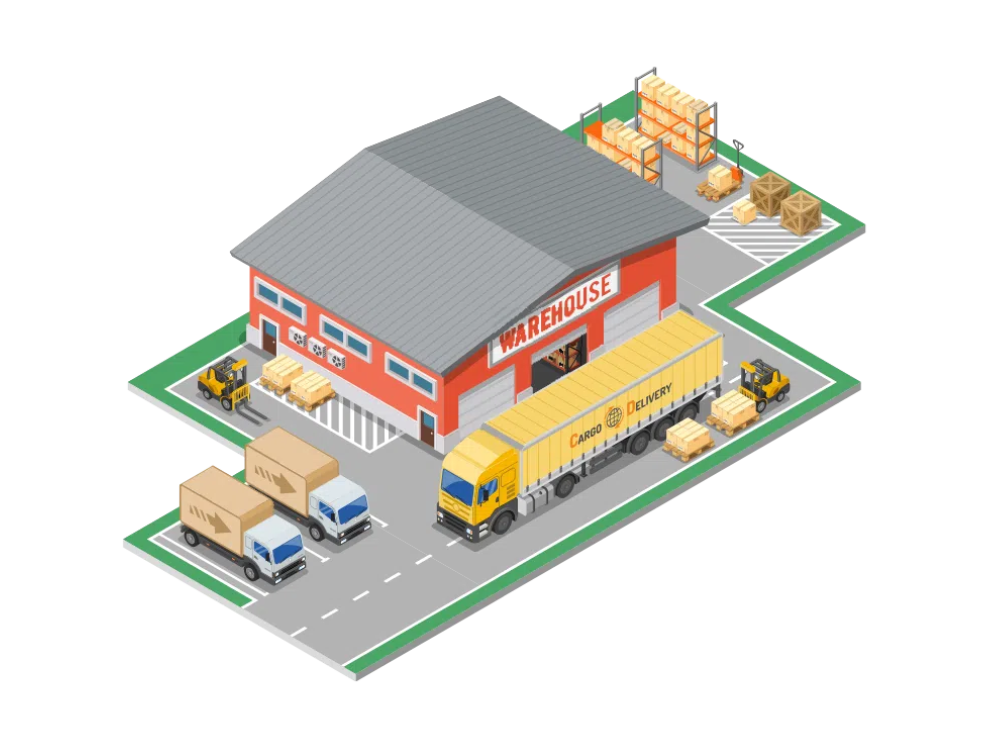In the world of modern logistics, a freight depot service is an essential solution for companies that need a secure and well-organised space to store and manage their goods. A freight depot optimises logistics flows, improving operational efficiency and reducing inventory management costs.
But what does warehousing service mean and what are the concrete advantages for a company? Let’s find out together in this comprehensive guide, analysing every aspect related to this service, from how it works to regulations, and the differences between warehousing and storage.
Summary:
Freight storage service: the ideal solution for efficient logistics
What is a goods storage service and to whom is it addressed?
Third-party goods storage: what advantages does it offer?
What does consignment goods mean?
What is the difference between storage and warehousing?
Goods on consignment: what are the regulatory requirements?
Freight storage service: a key element for modern logistics
Why choose the SINERGY SOLUTION freight storage service?
What is a goods storage service and to whom is it addressed?
When we speak of a warehousing service, we are referring to a solution that allows companies to entrust a third-party logistics operator with the management of the storage of their goods. This service includes a series of activities that are essential to ensure the proper maintenance of products, their registration and handling when necessary.
The logistics freight storage service is divided into several operational phases:
- Loading and unloading of goods: this is done with the help of forklifts and specialised machinery to ensure maximum safety.
- Safe storage: goods are placed on pallets within organised and monitored areas.
- Picking and order preparation: goods are selected, packed and prepared for shipment.
- Inventory management: each item is labelled and recorded for easy tracking.
- Fast shipping: goods are handled in such a way as to ensure timely deliveries.
These steps allow an accurate control of the goods, reducing the risk of errors and ensuring an efficient and safe service.
Third-party goods storage: what advantages does it offer?
Choosing a freight depot allows companies to obtain numerous benefits, including:
- Reduction of fixed costs: there is no need to invest in one’s own infrastructure, thus reducing expenses related to warehousing and personnel.
- Operational flexibility: companies can adapt the storage volume according to demand, without additional costs for unused space.
- Optimisation of logistics: thanks to a logistics warehouse service, handling and delivery times can be improved, increasing customer satisfaction.
- Safety and regulatory compliance: warehouses follow strict regulations in terms of product safety and handling, ensuring that goods are always stored in ideal conditions.
- Greater focus on core business: by outsourcing warehouse management to experts, companies can concentrate on developing their core business.
What does consignment goods mean?
The term consignment goods refers to goods that are entrusted to a specialised company for safekeeping, without title passing immediately to the final consignee. This mechanism is particularly advantageous for companies operating in wholesale or distribution, allowing them to better manage their inventories and reduce capital tied-up costs.
When it comes to how consignment stock works, the process is that the goods remain in the warehouse until the end customer decides to purchase them. At that point, the accounting entry is made and the goods are shipped. This system offers advantages in terms of flexibility and cash flow management.
What is the difference between storage and warehousing?
A common question in the logistics sector is: what is the difference between a warehouse and a depot?
Although the two terms are often used synonymously, there are substantial differences:
- A warehouse is a physical structure in which goods are stored for a longer or shorter period of time. It is often owned by the company itself and managed internally.
- The goods warehouse, on the other hand, is a space managed by a third party operator offering logistics services such as picking, labelling and order preparation.
Opting for a third-party freight depot means delegating logistics management to professionals, avoiding the complexity of managing a proprietary warehouse.
Goods on consignment: what are the regulatory requirements?
For those using the consignment goods service, it is essential to be familiar with the requirements of the regulations in force. The regulations on consignment services state that:
- Every movement of goods must be tracked with specific documentation.
- Incoming and outgoing goods must be recorded to avoid accounting discrepancies.
- The storage conditions for particular product categories (food, pharmaceuticals, etc.) must be observed.
- The tax provisions must be complied with, especially if the storage concerns goods destined for foreign countries.
Relying on a professional freight depot guarantees compliance with all regulations and flawless administrative management.
Freight storage service: a key element for modern logistics
The warehousing service enables companies to optimise product distribution, improve delivery times and reduce operating costs.
A goods warehouse is not just a physical space, but a real logistics hub equipped with advanced technology for stock management.
Why choose the SINERGY SOLUTION freight storage service?
Relying on us at SINERGY SOLUTION for your goods storage service means choosing a reliable, competent and needs-oriented partner for your business.
Thanks to our experience in the industry, we offer customised solutions for the management and storage of your goods, with a focus on efficiency, safety and regulatory compliance.
In addition, we ensure that each item is properly labelled, registered and stored. This ensures that the goods are always in perfect condition when they are delivered.
Contact us today to find out how we can help you improve your business logistics with a tailor-made service.



